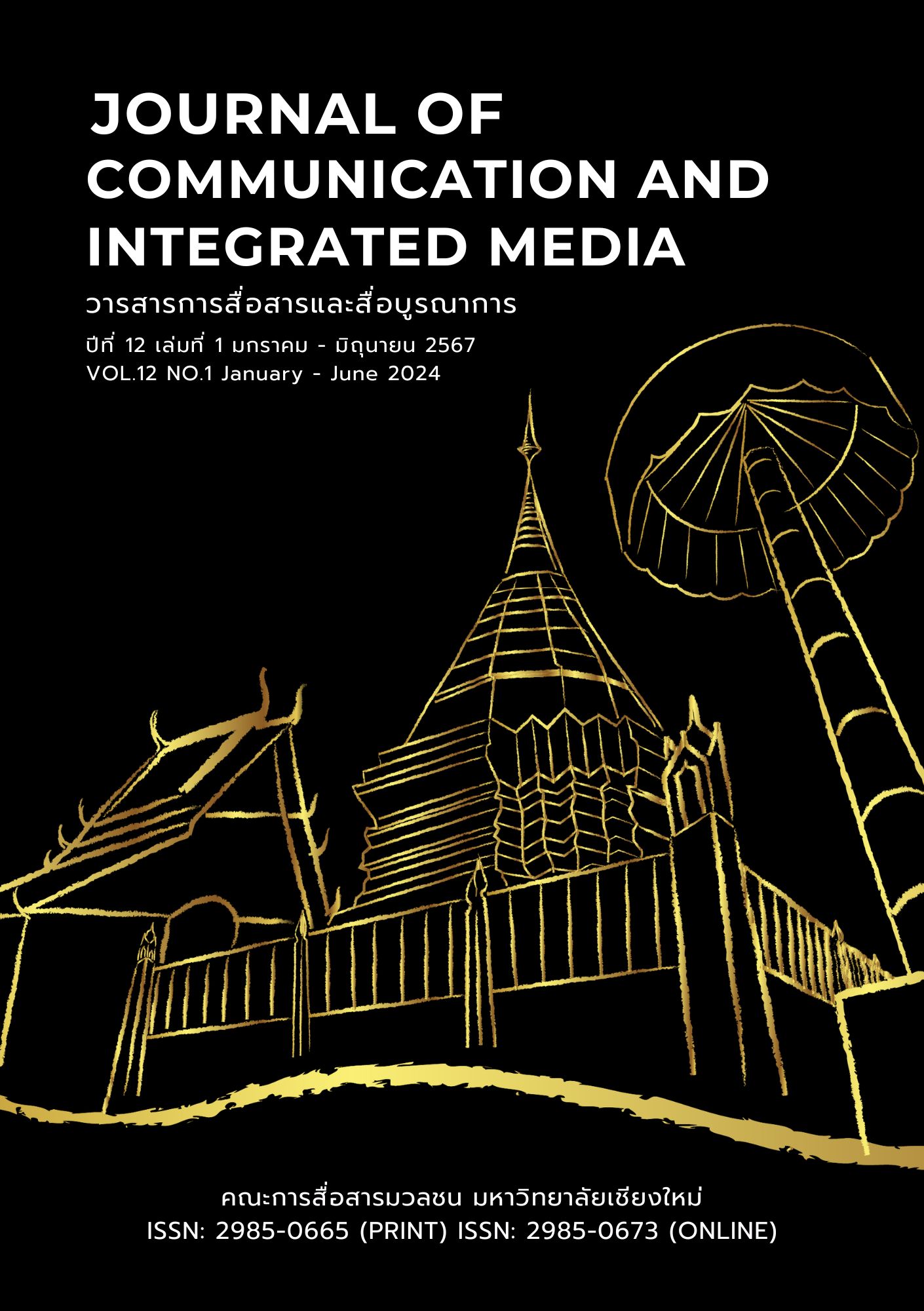The Role of Elites on Controlling the Thai Film Industry (1897-1936)
Main Article Content
Abstract
The objective of this study is to investigate what is the role of elites to control the Thai film industry between 1897-1936. The study used qualitative research methods by summarizing issues from research, academic articles and related historical documents in both Thai and English. The research found that the role of elites on controlling the Thai film industry is clearly evidenced. Its roots back to the reigns of King Rama 5 who modernized the country by adopting Western culture into Siam. At the same time, Movies emerged in the world and became an interesting innovative technology for elites. Movies imported into Siam through elites who had the opportunity to have access to this invention. After that, the Thai elite class exerted their influence through: 1) Censorship of films before releasing 2) Enacting laws alongside censorship of films before releasing and 3) Asserting power over the film business market. The impact on the drafting of film laws from the past to the present has created a culture of fear for Thai filmmakers in producing content that differs from the state's norms of security and good morality.
Article Details

This work is licensed under a Creative Commons Attribution-NonCommercial-NoDerivatives 4.0 International License.
ลิขสิทธ์ที่ผู้เขียนบทความต้องยอมรับ
References
กฤษดา เกิดดี. (2548). การเซ็นเซอร์ภาพยนตร์. โรงพิมพ์ หสน. ห้องภาพสุวรรณ.
เกษม ศิริสัมพันธ์. (2551). ทฤษฎีสื่อสารมวลชน (พิมพ์ครั้งที่ 2). ด่านสุทธาการพิมพ์.
กอปรพงษ์ กุณฑียะ. (2559). การวิเคราะห์การอภิปรายความเชิงวิพากษ์กฎหมายที่เกี่ยวข้องกับภาพยนตร์ในประเทศไทย. [ปริญญานิพนธ์ปรัชญาดุษฎีบัณฑิต]. มหาวิทยาลัยธรรมศาสตร์.
โดม สุขวงศ์. (2539). พระบาทสมเด็จพระปกเกล้าฯ กับภาพยนตร์ (พิมพ์ครั้งที่ 1). กรุงเทพฯ: บริษั คอมแพคท์พริ้นท์ จำกัด.
โดม สุขวงศ์. (2555). สยามภาพยนต์. (พิมพ์ครั้งที่ 1). โรงพิมพ์ ลินคอล์น โปรโมชั่น.
ชาญวิทย์ เกษตรศิริ. (2559). ประวัติการเมืองไทยสยาม พ.ศ. 2475-2500. มูลนิธิโครงการตำราสังคมศาสตร์และมนุษยศาสตร์.
จำเริญลักษณ์ ธนะวังน้อย. (2544). ประวัติศาสตร์ภาพยนตร์ไทย ตั้งแต่แรกเริ่มจนสิ้นสมัยสงครามโลกครั้งที่ 2. สำนักพิมพ์มหาวิทยาลัยธรรมศาสตร์.
นิธิ เอียวศรีวงศ์. (2537, พฤศจิกายน). ถอดรหัสโลกาภิวัตน์. มติชนสุดสัปดาห์, 15 (743).
ประชาไท. (13 ตุลาคม 2564). CENSORSHIP NEVER DIES คำเตือน: บางเรื่องอาจหาดูไม่ได้ในประเทศนี้. https://prachatai.com/journal/2021/10/95451
ประชาไท. (20 กุมภาพันธ์ 2567). ศาล ปค.สูงสุดให้ฉาย‘เชคสเปียร์ต้องตาย’ กองเซ็นเซอร์ต้องจ่าย 5 แสนพร้อมดอกเพราะสั่งห้ามฉาย. https://prachatai.com/journal/2024/02/108144
เมาริตซิโอ เปเลจจี. (2566). เจ้าชีวิต เจ้าสรรพสิ่ง (พิมพ์ครั้งที่ 1). สำนักพิมพ์ฟ้าเดียวกัน.
วัชรพล พุทธรักษา. (2557). บทสำรวจความคิดทางการเมืองของอันโตนิโอ กรัมชี่. สมมติ.
สัญญา สัญญาวิวัฒน์. (2547). ทฤษฎีสังคมวิทยา เนื้อหาและแนวทางการใช้ประโยชน์เบื้องต้น. พิมพ์ครั้งที่ 11. โรงพิมพ์จุฬาลงกรณ์มหาวิทยาลัย.
หอภาพยนตร์. (4 กุมภาพันธ์ 2564). แมลงรักในสวนหลังบ้าน. https://fapot.or.th/main/news/634
อิทธิพล วรานุศุภากุล. (2552). ความคิดเห็นต่อการจัดระดับภาพยนตร์สำหรับประเทศไทย. [ปริญญานิพนธ์วารสารศาสตรมหาบัณฑิต (สื่อสารมวลชน) มหาวิทยาลัยธรรมศาสตร์]. https://digital.library.tu.ac.th/tu_dc/frontend/Info/item/dc:124442
อุณาโลม จันทร์รุ่งมณีกุล. (2560). 120 ปี ธุรกิจภาพยนตร์ไทยในมิติประวัติศาสตร์เศรษฐกิจและสังคมไทย. ศักดิ์โสภาการพิมพ์.
Goldstein, M., King G. and Wright M. (2010). Diffusionism and Acculturation. Department of Anthropology the University of Alabama. Retrieve from https://anthropology.ua.edu/theory/diffusionism-and-acculturation/
Sassoon, A. S. (1982). Passive revolution and the politics of reform. Approaches to Gramsci.
Wittern-Keller, L. (2013). All the power of the law: governmental film censorship in the United States. In Silencing Cinema: Film Censorship around the World (pp. 15-32). New York: Palgrave Macmillan US.
WorkpointToday. (20 กุมภาพันธ์ 2567). ศาลปกครองสูงสุด พิพากษา ‘เชคสเปียร์ต้องตาย’ ชนะคดีละเมิด ยกคำสั่งแบน-ให้กองเซ็นเซอร์ชดใช้. สืบค้นจาก https://workpointtoday.com/shakespeare-must-die/


